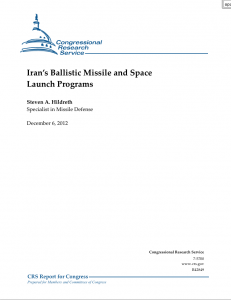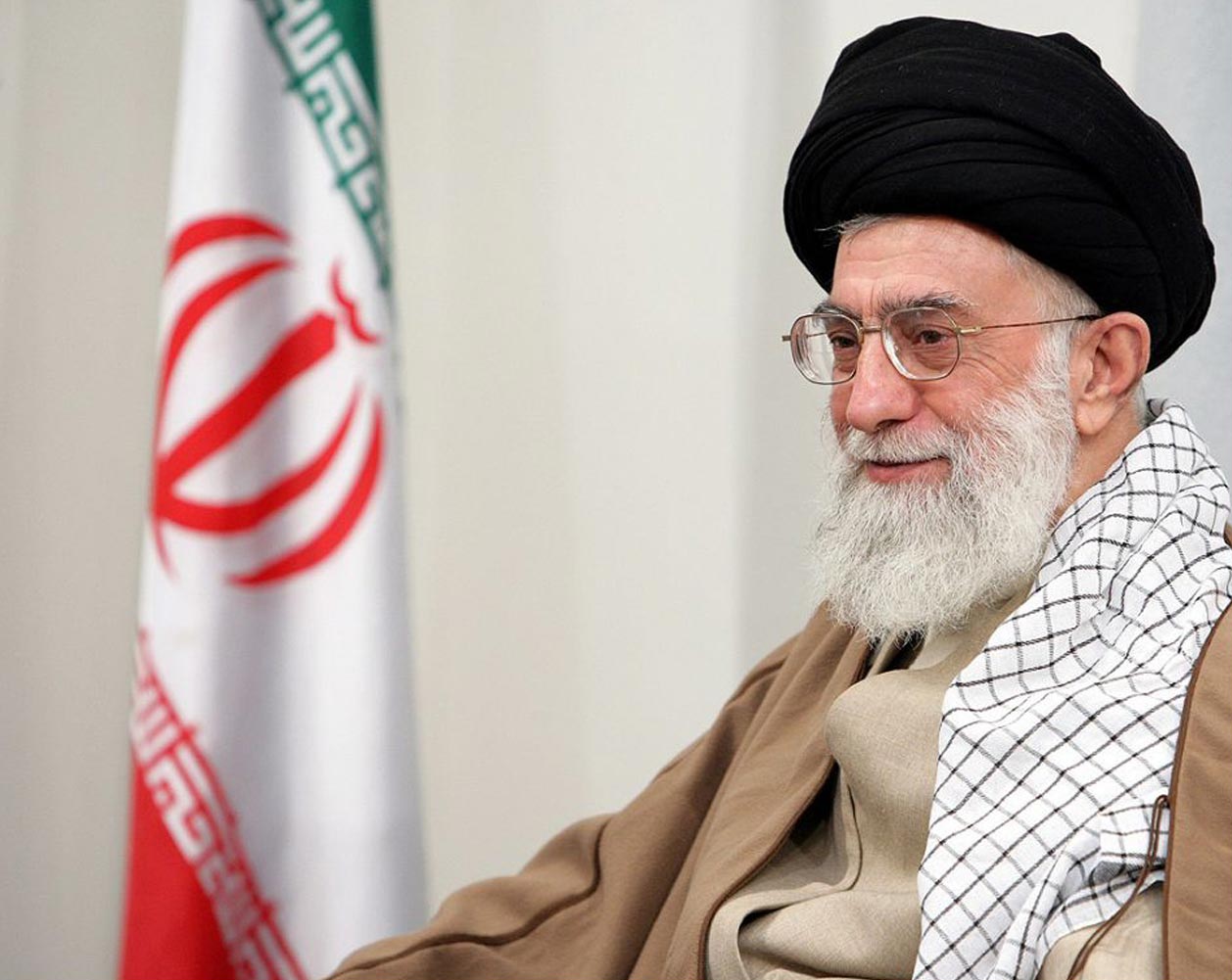 The Congressional Research Service (CRS) published a report on December 6 titled “Iran’s Ballistic Missile and Space Launch Programs,” which the Federation of American Scientists has posted. It casts doubt on a long-held view by the US Intelligence Community that Iran could test-fly an intercontinental ballistic missile (ICBM) by 2015 if it received “sufficient foreign assistance.”
The Congressional Research Service (CRS) published a report on December 6 titled “Iran’s Ballistic Missile and Space Launch Programs,” which the Federation of American Scientists has posted. It casts doubt on a long-held view by the US Intelligence Community that Iran could test-fly an intercontinental ballistic missile (ICBM) by 2015 if it received “sufficient foreign assistance.”
The report assesses that Iran has not been receiving adequate amounts of critical foreign assistance from China or Russia over the last decade while sanctions have made it increasingly difficult for it to obtain required components and materials to test fly an ICBM. It also states that without a workable nuclear warhead, which according to US intelligence Iran does not have and has not as of yet decided to build, “the proliferation of Iranian ballistic missiles is arguably not an imminent significant threat.”
The CRS report also notes that Iran’s advancement in missile technology has developed alongside the sanctions regime imposed upon it. “Perhaps the irony of a restrictive nonproliferation regime is that Iran became largely self-sufficient,” writes report author Steven A. Hildreth, a specialist in missile defense. Elsewhere he states: “A determined adversary such as Iran has not shown that it is deterred or dissuaded by U.S. conventional military superiority, or by U.S. and international sanctions, or by the deployment of U.S. BMD capabilities.” In the absence of regime change, the report assesses that Iran is unlikely to change its behavior, hence the US has little option but to continue to on its “current apparent path”:
For the time being, however, Congress will likely continue to take a focused interest in Iran’s role in the region and in its missile programs. Beyond efforts to impose increasingly stringent sanctions, it is unclear whether there is more Congress itself can do to affect Iran’s commitment to its ballistic missile and space launch programs.
A December 7 CRS Reportby Kenneth Katzmann also assesses that “U.S. and U.N. sanctions have not, to date, accomplished their core strategic objective of compelling Iran to verifiably limit its nuclear development to purely peaceful purposes.”
According the the US government, Iran has the largest number of ballistic missiles in the Middle East, but the vast majority of Iran’s heavy artillery rockets and ballistic missiles are short-range of less than about 500 kilometers. These missiles “could not strike U.S. or allied bases in the region unless they were moved far from their operating base and launched from vulnerable positions along Iran’s Persian Gulf coastline,” writes Hildreth.
In what looks like a direct response to the report, the Times of Israel reported that Iran’s air force commander said Tuesday that Israel is Iran’s “longest-range target”.
“We don’t need missiles with more than a 2,000-kilometer range, even though have the technology to build them,” said Brig. Gen. Amir Ali Hajizadeh.
But according to the CRS report, Iran has “proven itself capable of misleading and deceitful statements regarding its ballistic missile and space launch programs” casting “serious doubt on relying heavily on Iranian statements about their ballistic missile and space launch programs.” Hildreth references a Washington Post article about “a photo-shopped “successful” test of a failed Iranian SRBM launch in 2008” as an example of “Iranian misinformation” about its ballistic missile capabilities.





